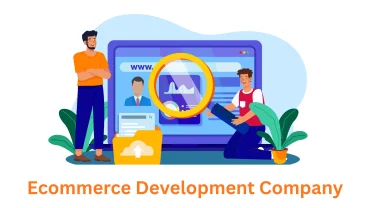Multiplatform mobile app development is a hot topic for businesses and developers alike. Building apps that seamlessly run on iOS, Android, and even the web saves time, money, and resources. But the landscape is constantly changing. In this post, we’ll dive into the latest trends, tools, and technologies driving innovation in cross-platform app development.
1. The Rise of Flutter
Google’s Flutter has emerged as a dominant force in multiplatform development. With its fast performance, expressive UI, and hot reload feature for instant code changes, Flutter has captured the hearts of many developers. Here’s why Flutter is trending:
- Single Codebase: Write code once and deploy to multiple platforms.
- Beautiful UI: Create stunning, customizable user interfaces.
- Growing Ecosystem: A rich library of widgets and packages.
2. React Native: A Mature Contender
Facebook’s React Native remains a strong contender for multiplatform app development. Its use of JavaScript and React components makes it a comfortable choice for web developers transitioning to mobile. Key benefits include:
- Large Community: Extensive support and resources.
- Native Components: Achieve a more native-like look and feel.
- Performance Improvements: Ongoing efforts to enhance speed and efficiency.
3. Kotlin Multiplatform: Sharing Logic, Native UI
Kotlin Multiplatform (KMP) offers a unique approach by allowing you to share business logic and application code across platforms while using native UI components for each. This hybrid approach provides:
- Code Reusability: Maximize efficiency by sharing core functionality.
- Native UI Performance: Deliver optimal user experiences on each platform.
- Growing Popularity: Gaining traction in the development community.
4. Low-Code and No-Code Solutions
The demand for faster app development has fueled the rise of low-code and no-code platforms. These tools allow you to build apps with minimal or no coding, often through visual interfaces. Some popular options include:
- OutSystems
- Mendix
- Appian
5. Web Technologies: PWAs and Beyond
Progressive Web Apps (PWAs) bridge the gap between web and mobile, offering app-like experiences that work offline and can be installed on the home screen. PWAs are built using web technologies like HTML, CSS, and JavaScript, making them a versatile choice.
Emerging Trends
- Machine Learning in Apps: Integrating AI-powered features for personalization and automation.
- 5G Connectivity: Leveraging faster network speeds for richer app experiences.
- Augmented Reality (AR): Creating immersive experiences for users.
Conclusion
The future of multiplatform mobile app development is bright. Whether you choose Flutter, React Native, Kotlin Multiplatform, low-code solutions, or web technologies, the key is to select the tools that align best with your project’s requirements and your team’s expertise.
Need Help Building Your App?
If you’re looking for a company to develop your mobile app or explore other digital services like web development, Search Engine Optimization, App Development, PHP Development, Software Development or blockchain solutions, consider Associative. We are a Multiplatform Mobile App Development company with a proven track record of delivering high-quality applications and digital solutions.
Let’s turn your app idea into a reality!
To learn more, consider reading other articles, blogs, and stories in this area.
Your Leading Multiplatform Mobile App Development Partner
The Power of One: Your Guide to Multiplatform Mobile App Development
The Ultimate Guide to Multiplatform Mobile App Development Tools & Resources
Multiplatform Mobile App Development: The Key to Reaching Wider Audiences
Mastering Multiplatform Mobile App Development: Your Roadmap to a Thriving Career



Comment (0)